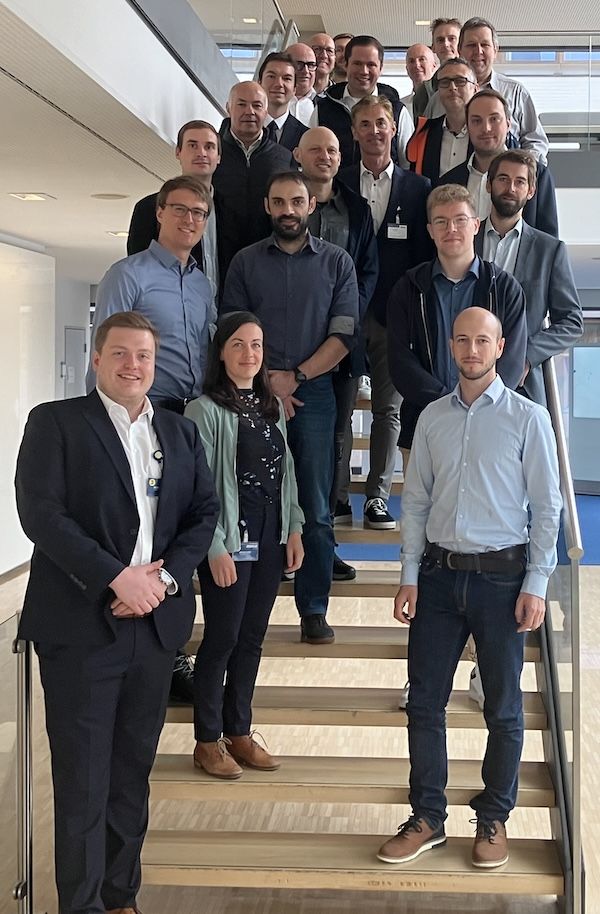A brand new German consortium of off-highway automobile OEMs, suppliers and teachers – PoWer – has been created to comprehensively examine the cross-application use of hydrogen-engine powertrain ideas for building and agricultural purposes, with management from Mahle.
PoWer members additionally embody Liebherr, Deutz, Equipment, The German Aerospace Middle (DLR), Purem, Claas, Braunschweig College of Expertise, Nagel, Umicore, NGK and Castrol,
This three-year challenge is being funded with €5.1 million by the Federal Ministry for Financial Affairs and Local weather Motion and supported by TÜV Rheinland. Mahle has been commissioned to handle the challenge.

Hydrogen engines provide many benefits due to their inherent traits reminiscent of effectivity, robustness, and low uncooked emissions, which make them significantly appropriate for purposes in building and agricultural machines.
“At Mahle, we now have been engaged on the event of hydrogen engines for years and are delighted that we will now additionally contribute this experience, along with sturdy companions, to the most recent developments for the off-road sector,” explains Dr Marco Warth, vice chairman of Company Analysis and Superior Engineering at Mahle. “Solely the cooperation of such various companions and consultants within the respective applied sciences allows a holistic strategy and impressively reveals the innovation potential of German analysis and business within the mobility sector.”
Off-road purposes will likely be demonstrated and analyzed in automobile idea research in addition to in systemic fleet and infrastructure issues. Exhaust gasoline aftertreatment ideas may also be developed and comprehensively examined on the check bench.
By inspecting the affect of hydrogen on supplies and the friction and put on traits, in addition to qualifying these leads to engine runs, all the basics important for reaching the acute robustness necessities, taking into consideration future emissions pointers of NRMM (non-road cell equipment), will likely be developed.
Mahle stands for technological range and, with its three strategic fields of electrification, thermal administration, and extremely environment friendly sustainable combustion engines, develops the most effective options for various purposes worldwide. The automotive provider is concerned in all main hydrogen engine tasks in addition to improvement and sequence tasks for gasoline cell autos.
Picture: Mahle GmbH
*Consortium members from the again left to the entrance proper: Tobias Horn (Mahle), Dr. Frank Schweizer (Fraunhofer IWM), Leonardo Morgado (Mahle), Philipp Winkelhahn (TU Braunschweig), Claus Dieter Vogt (NGK), Dr. Steffen Tischer (KIT-ITCP), Dennis Felger (Purem), Florian Reppert (KIT-IFKM), Dr. Uwe Wagner (KIT-IFKM), Dr. Ansgar Wille (NGK), Dr. Georg Töpfer (Deutz), Christian Depenbrock (TU Braunschweig), Mattis Gramke (Claas), Florian Heckert (DLR), Hans-Peter Böhm (Nagel), Fabian Wohlfahrt (Claas), Dr. Stefan Dietrich (KIT-IAM), Alexander Ohrt (Liebherr), Nils Kasselmann (TÜV Rheinland), Eva Zimmermann (TÜV Rheinland), Hannes Marlok (Mahle)


